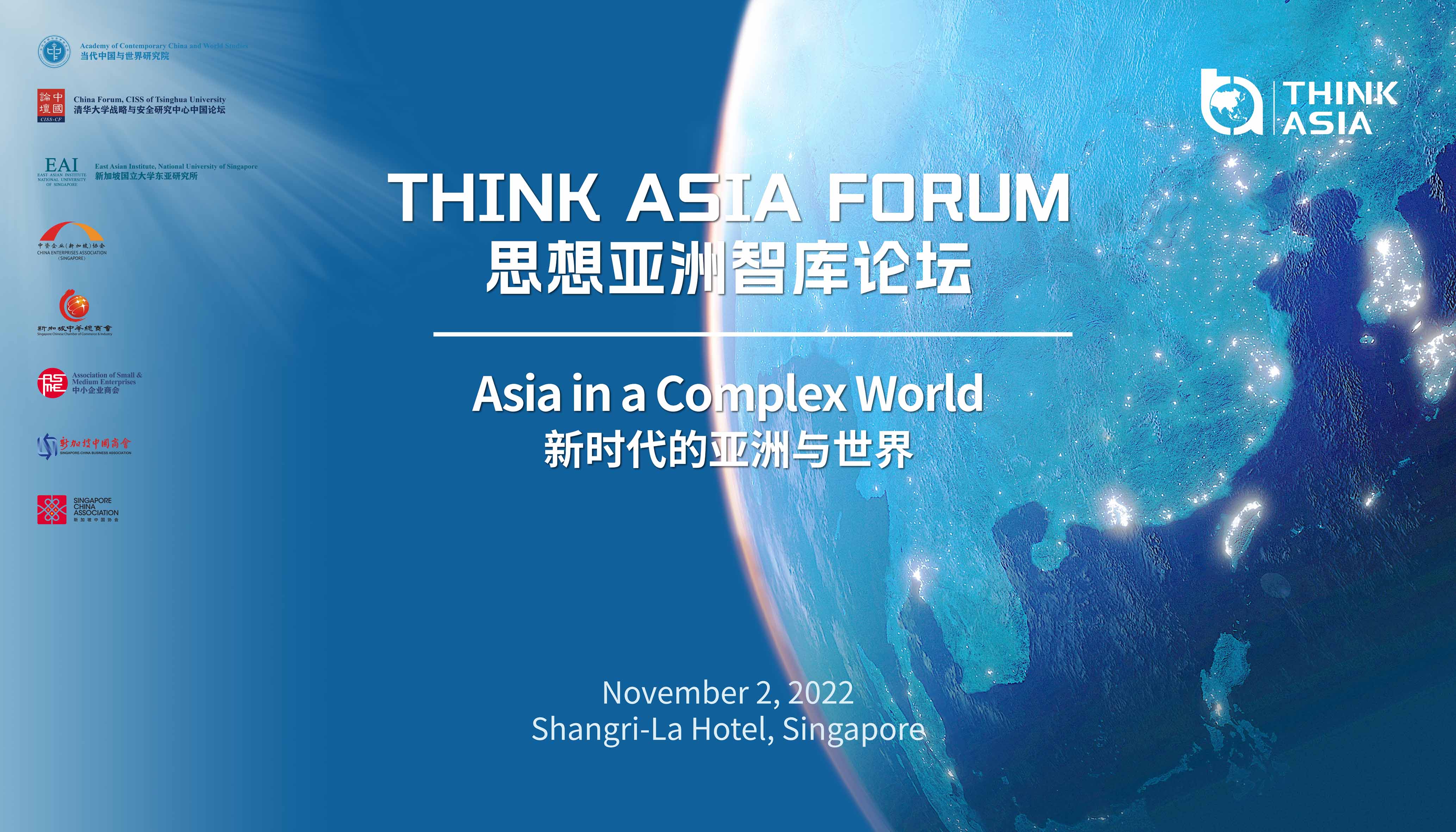On November 2, the inaugural Think Asia Forum kicked off in Singapore. The event was co-hosted by China Forum (CF) of the Center for International Security and Strategy (CISS) at Tsinghua University, the Academy of Contemporary China and World Studies (ACCWS), and the East Asian Institute at the National University of Singapore (NUS).
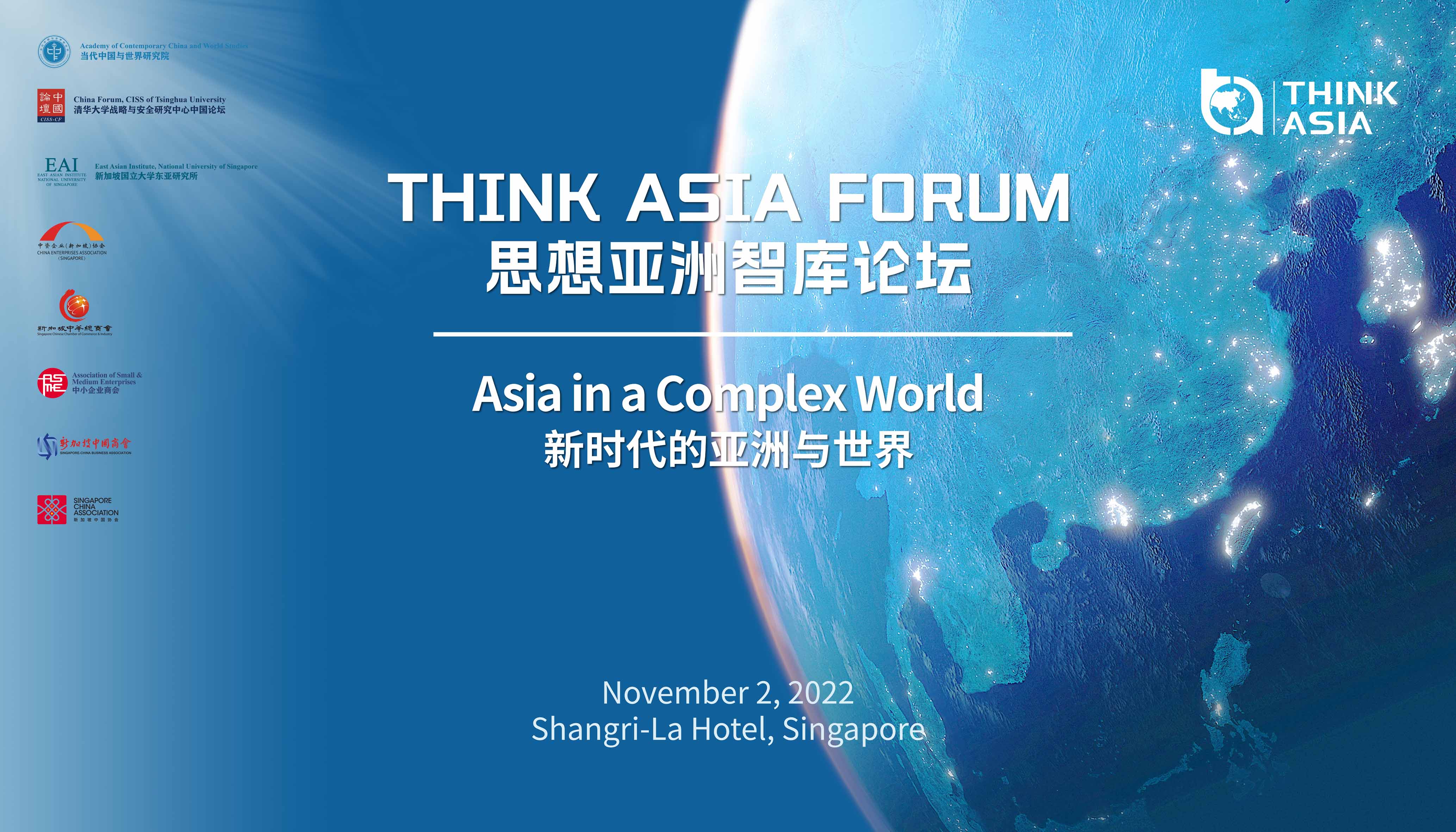
The forum brought together more than 40 experts and scholars from China, Singapore, Japan, the United States, India, Thailand, South Korea, the United Kingdom, the Philippines, Pakistan, Kazakhstan and other countries to discuss Asia’s prospects, security, cooperation mechanisms, as well as relations between Asian countries and the rest of the world. Over 150 guests from government agencies, think tanks, universities, chambers of commerce and industry associations in China and Singapore attended the meeting either in person or via video link. ACCWS President Yu Yunquan moderated the opening ceremony. Chinese Ambassador to Singapore H.E. Sun Haiyan was also at the forum.
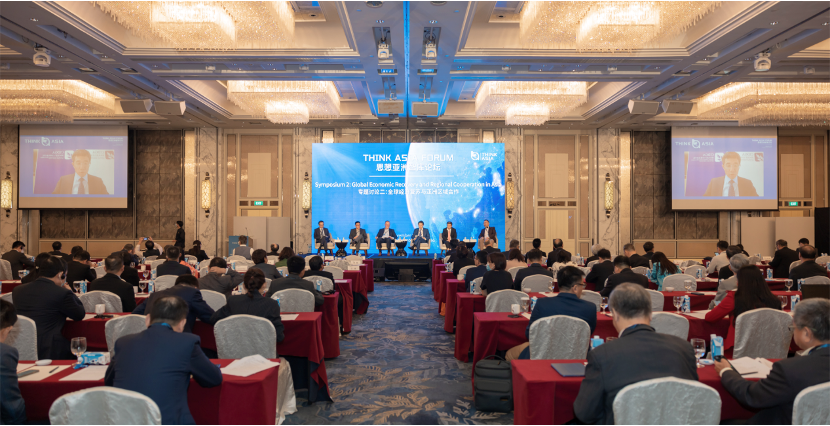
Keynote speeches were delivered by Yu Hongjun, former vice minister of the International Department of the Central Committee of the Communist Party of China (CPC) and China Forum expert, and Kishore Mahbubani, distinguished fellow at the Asia Research Institute at NUS and former Singapore permanent representative to the United Nations. The forum was structured in three symposiums, moderated respectively by Wang Gangyi, former deputy director of China Foreign Languages Publishing Administration, Zhou Zhaocheng, managing director at the Singapore Chinese Chamber of Commerce and Industry, and Han Hua, CF executive committee member.
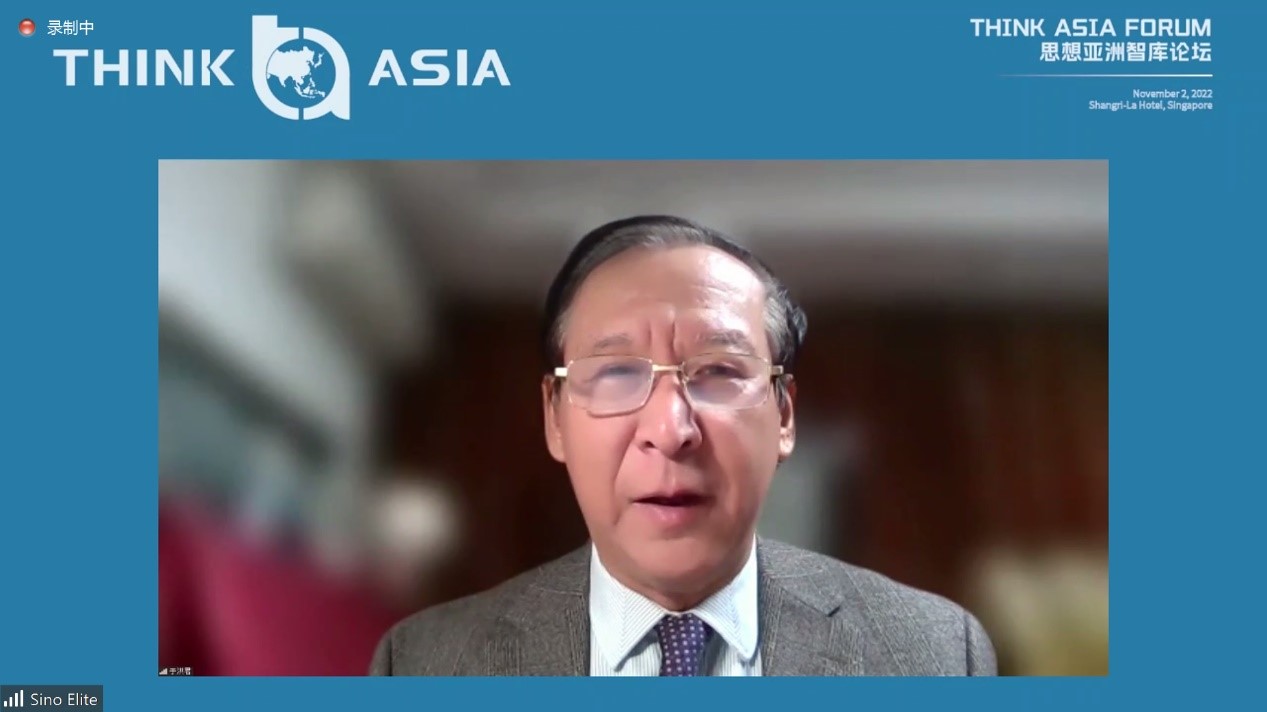
(Yu Hongjun, former vice minister of the International Department of the CPC Central Committee and China Forum expert)
In his address, Yu Hongjun said that the 20th CPC National Congress is of great significance in both the CPC’s history and for the rejuvenation of the Chinese nation at a time of unprecedented opportunities and challenges. The CPC will always stand on the right side of history and respond to the changes of our times with its unwavering commitment to building a community with a shared future for humankind. China and ASEAN countries will continue to promote mutual trust, respect and cooperation, which will provide more inspiration for the region and beyond.
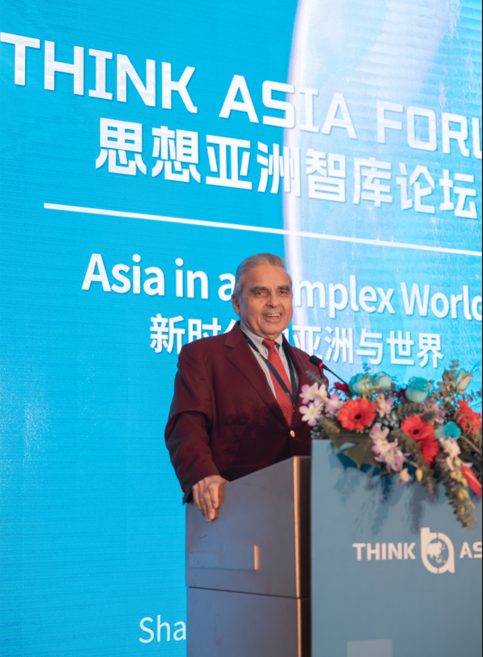
(Kishore Mahbubani, distinguished fellow at the Asia Research Institute at NUS and former Singapore permanent representative to the United Nations)
Kishore Mahbubani made three suggestions for Asia’s development. First, Asian countries need to give up the psychological dependence of getting ideas from the West and speak up for themselves. Second, ASEAN needs to be empowered to realize its full potential for regional development. Third, as the West withdraws from globalization, Asia must take up the baton.
The forum was structured in three symposiums: “Asia’s Challenges on the Path to Modernization,” “Global Economic Recovery and Regional Cooperation in Asia,” and “Asian Security and Cooperation.” Many panelists believe that the Chinese path to modernization, which was a key term in the report to the 20th CPC National Congress, has a great deal to offer across Southeast Asia and beyond.
Symposium 1: Asia’s Challenges on the Path to Modernization
Symposium 1, themed “Asia’s Challenges on the Path to Modernization,” explored the key challenges for the region on its path to modernization, as well as potential solutions and useful past lessons.
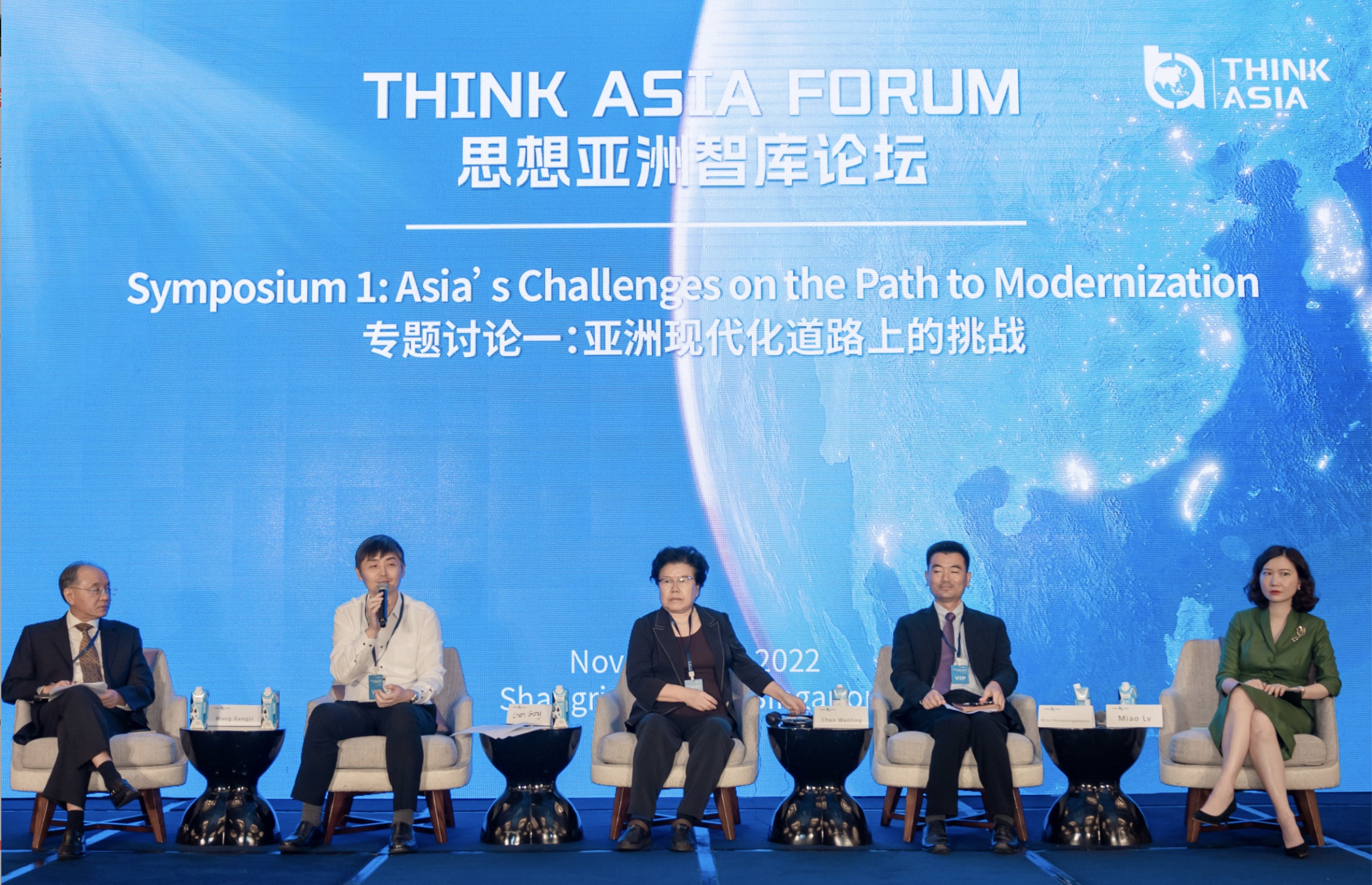
(From left to right: Wang Gangyi, Chen Gang, Chen Wenling, Wirun Phichaiwongphakdee, Mabel Lu Miao)
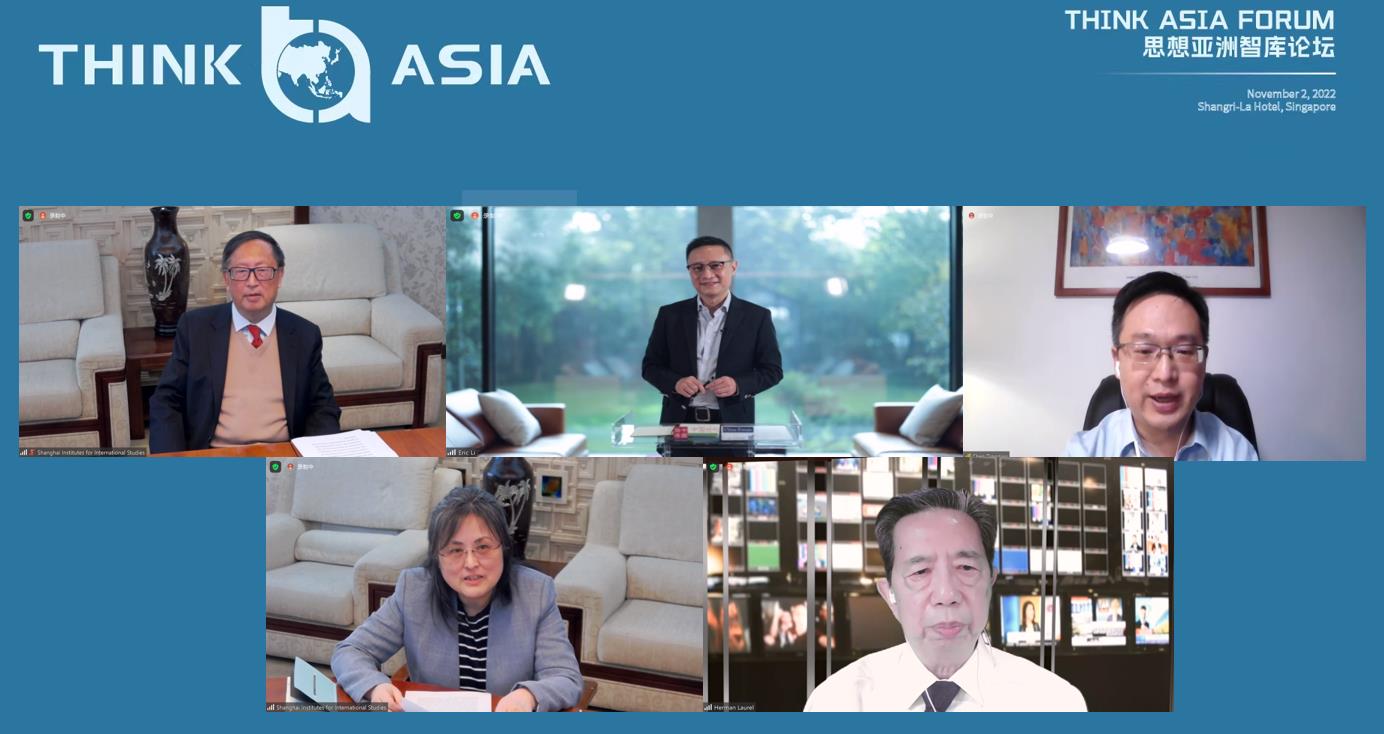
(From left to right, top to bottom: Yang Jiemian, Eric Li, Chen Dingding, Wu Chunshi, Herman Tiu Laurel)
As the world’s center of gravity shifts to Asia, home to many developing countries who have been suffering from the inability to fully unlock their national potential, the region needs to find a more inclusive and pluralistic development framework, said CF Vice Chairman Eric Li.
This symposium also featured Yang Jiemian, director, Academic Committee, Shanghai Institutes for International Studies; Chen Wenling, chief economist, China Center for International Economic Exchanges; Wirun Phichaiwongphakdee, director, Thailand-China Research Center of the Belt and Road Initiative; Chen Dingding, president, Intellisia Institute; Wu Chunshi, director, Institute for International Strategic Studies, Shanghai Institutes for International Studies; Mabel Lu Miao, co-founder, Center for China and Globalization; Herman Tiu Laurel, founder, Philippine-BRICS Strategic Studies; and Chen Gang, deputy director, East Asian Institute, National University of Singapore. The panelists highlighted the importance of the commitment to globalization, regional security and cooperation mechanisms, high-tech talents, as well as greater understanding and friendship between peoples across Asia, so that together we can move towards modernization and build an Asian community with a shared future.
Symposium 2: Global Economic Recovery and Regional Cooperation in Asia
The second symposium, entitled “Global Economic Recovery and Regional Cooperation in Asia,” looked at Asia’s economic performance and prospective remedies amid sluggish global growth.
This session featured CF experts Huang Renwei, executive dean, Fudan Institute of Belt and Road and Global Governance, and Gong Jiong, vice president for research, University of International Business and Economics-Israel.

(From left to right: Zhou Zhaocheng, Gong Jiong, Bert Hofman, Wang Huiyao, Zong Liang, and Yersultan Zhanseitov)
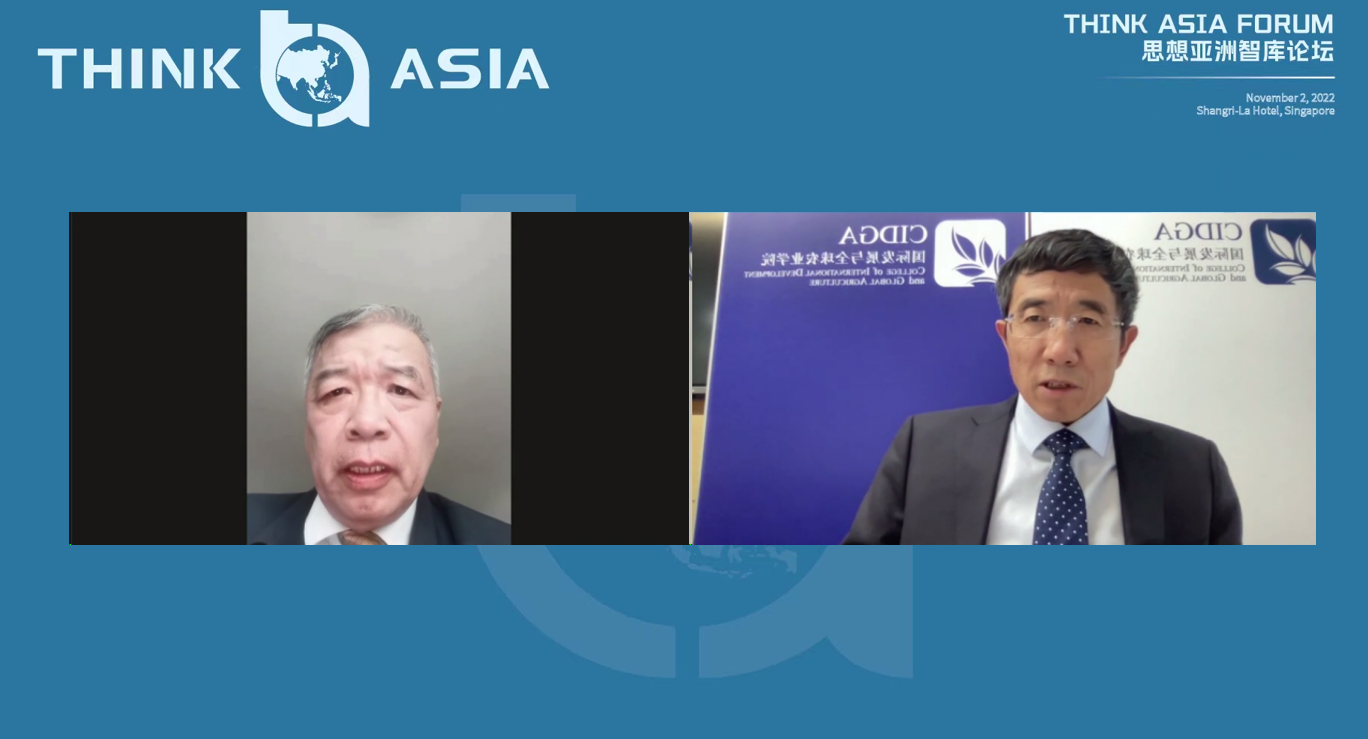
(From left to right: Huang Renwei and Li Xiaoyun)
The Monroe Doctrine simply won’t work for Asia, which has always been a diverse place in terms of history, culture, religion, political institutions and social fabrics, said Gong Jiong. He noted that as the world’s economic center of gravity moves towards Asia, this is the moment for countries in the region to carefully envisage our continent’s future and to promote peace, security, and prosperity in the region.
Huang Renwei pointed out that, amid supply chain disruptions, the US debt issue and the crisis in Ukraine, Asian countries should take proactive and concerted action to manage risks and ensure stable and healthy economic development across the region.
The symposium also featured Zong Liang, chief researcher, Bank of China Research Institute; Bert Hofman, director, East Asian Institute, National University of Singapore; Li Xiaoyun, honorary dean, China Institute for South-South Cooperation in Agriculture, China Agricultural University; Yersultan Zhanseitov, researcher, Institute of World Economics and Politics, Kazakhstan; and Wang Huiyao, president, Center for China and Globalization. The panelists discussed Asia’s economic potential, trade and economic cooperation, digitalization, and poverty eradication, and believe that the establishment of free trade agreements, infrastructure development, advances in digitalization and investment in clean energy in Asia have empowered global economic recovery. As Asian countries work together to press ahead with those efforts, China-led supply chain integration could further enhance the integration of currency and capital in the region.
Symposium 3: Asian Security and Cooperation
Symposium 3, titled “Asian Security and Cooperation,” turned to maintaining peace and stability in Asia, building a regional security architecture, and coordinating regional security initiatives. CF experts Zhang Tuosheng, academic committee member at CISS, and Zhou Bo, senior fellow at CISS, were invited to speak at the session.
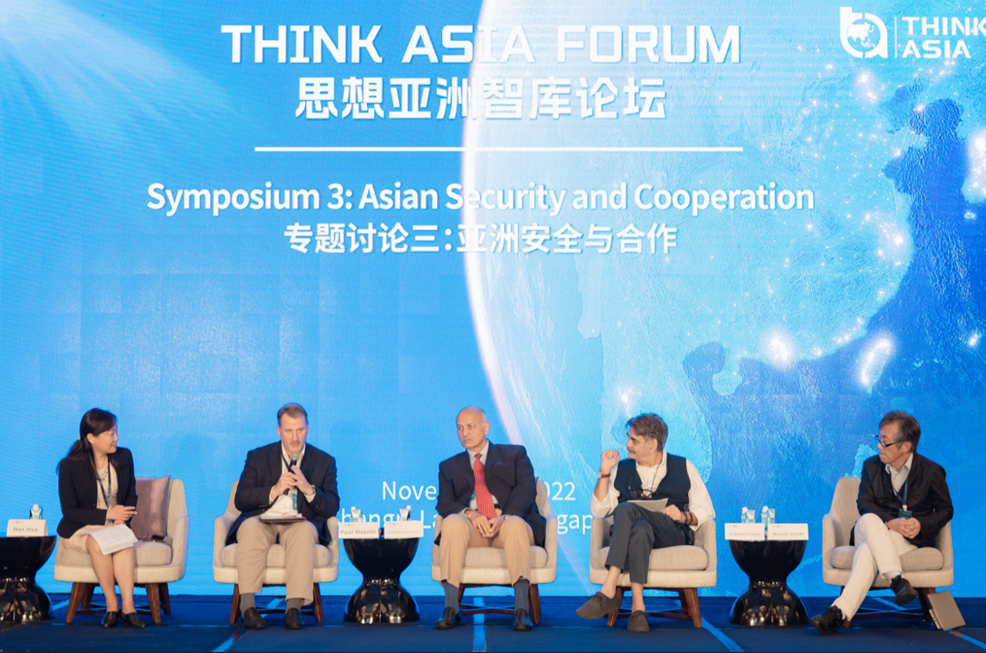
(From left to right: Han Hua, Paul Haenle, Mushahid Hussain Syed, Mohammad Saqib, and Onishi Hiroshi)
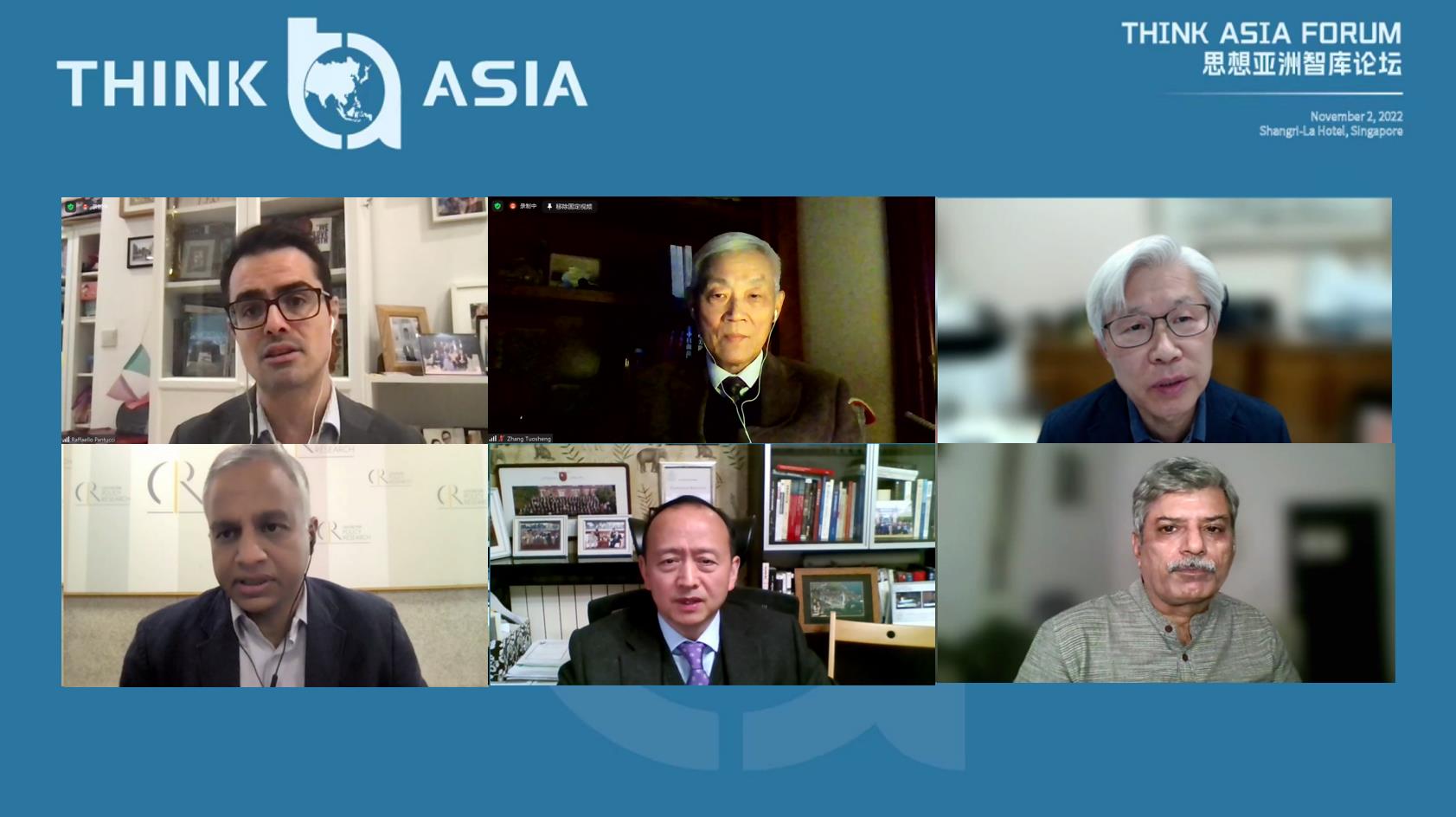
(From left to right, top to bottom: Raffaello Pantucci, Zhang Tuosheng, Sang Hyun Lee, Sushant Singh, Zhou Bo, Hemant Adlakha)
As US-China relations sour, it is all the more important for Asian countries to safeguard regional peace and stability, Zhang Tuosheng stressed, adding that we should work together towards the establishment of an overarching security architecture or organization in the region, stay true to the principles of peaceful coexistence, and promote pragmatic multilateral security dialogues, so as to build Asia’s resilience to the new Cold War, which has been revived in Europe.
In his speech, Zhou Bo noted that the ongoing crisis in Ukraine and US influence in the Asia-Pacific region have affected Asia’s trade, economic and security landscapes in many ways. Even if the US intends to “decouple” from China, it can hardly shift its pivot away from Asia. Therefore, the establishment of friendly relations between the US and China, which will remain a major global player, through dialogue and other peaceful solutions will play an important role in maintaining regional security and beyond.
This symposium also featured Mushahid Hussain Syed, chairman, Defense Committee, Pakistani Senate; Raffaello Pantucci, senior fellow, S. Rajaratnam School of International Studies, Nanyang Technological University, Singapore; Onishi Hiroshi, professor emeritus, Keio University, Japan; Mohammad Saqib, secretary general, India China Economic and Cultural Council; Paul Haenle, visiting senior research fellow, East Asian Institute, National University of Singapore; Sang Hyun Lee, president, The Sejong Institute, South Korea; Sushant Singh, senior fellow, Centre for Policy Research, India; and Hemant Adlakha, professor of Chinese, Jawaharlal Nehru University, New Delhi. As Asian countries take the lead in reshaping the world order, we must look carefully at our relations with the West; it is necessary to push for regional integration in Asia as we march into an Asian 21st century through Asian efforts, panelists said. At the same time, countries in the region need to consider establishing a broader Asian security architecture and setting up more mechanisms for regional dialogue and engagement.
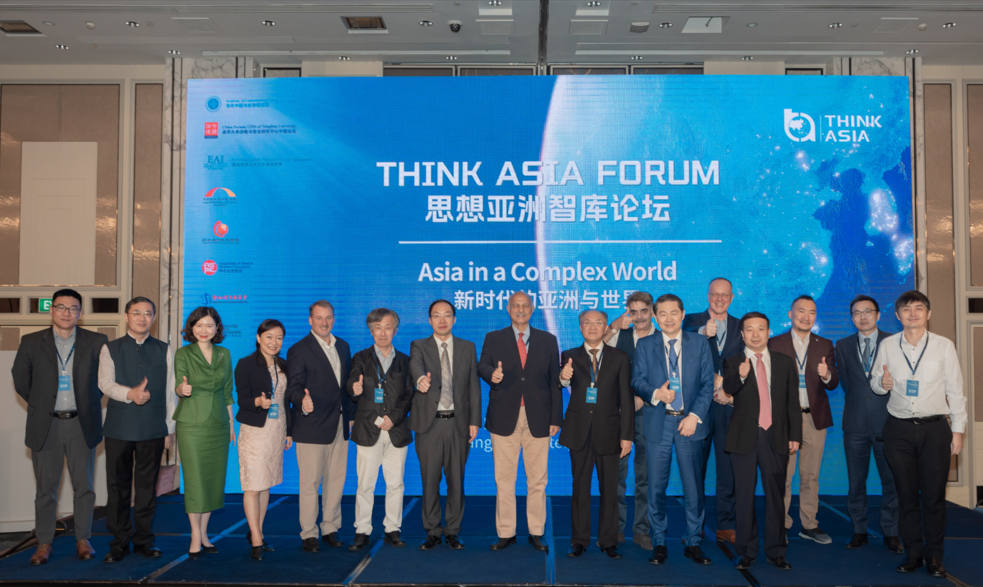
【The Think Asia Forum is committed to providing an open platform for dialogue and cooperation among Asian think tanks on the stability, development and overall betterment of our continent.】

